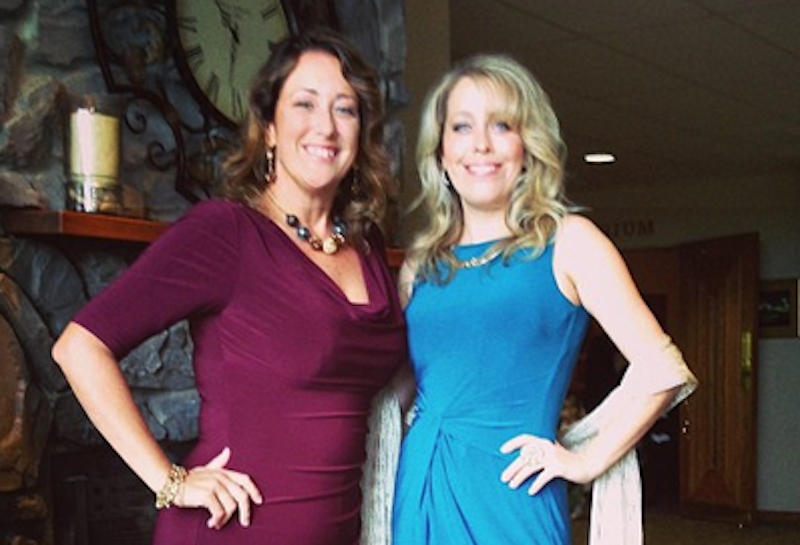My 37-year-old sister took her own life last week. I'm the oldest of six in our family (her husband of exactly two months was dealing with unfathomable grief and my parents are still recovering from my dad’s recent stroke), so I assumed an organizational role in making arrangements. It’s been a very difficult week. We all process grief in different ways, as I observed during these trying days.
The night my sister died, I lay awake on my parents’ couch and searched for an answer I will never find: Why? We can line up reasons and guesses, but we won't really find the answers. Our psychological lives consist symbolically of carefully balanced silver trays. Many things come on and off our trays over the years. When life is hard, the tray is heavy. When major life events good or bad come and go, the weight of the tray shifts. The addition of one item can flip the tray. It takes so much strength and energy for us to keep these trays balanced. My sister, in one moment, didn’t have the strength she needed to keep the tray upright. The thought of ending one’s life comes to many, and thankfully is often followed by a second thought or decision not to act. Through the fault of no one, Beth wasn’t strong enough to find the second thought.
As a mental health advocate working on her masters degree in counseling, not only did my sister touch the lives of many, but she wouldn’t have wanted her family to make excuses for her death or to cover up its cause. Online I found sample obituary language, found “died suddenly” and “passed away” (don’t even talk to me about “sleeping with the angels” or “crossing over to Jesus”) but I also found that suicide prevention and awareness advocates prefer the direct language of “died from suicide” in order to help remove the stigma associated with it. Use of the phrase “committed suicide” is discouraged because it implies crime—you commit murder. I started with recommended language of “died from suicide” but when I read the draft of the obit, family members preferred “took her own life.” At least we weren’t going to make it vague. The newspaper my sister wrote nine articles for (The Philadelphia Daily News) wouldn't run her obituary because they don't "do obits on suicides."
Suicide is the tenth leading cause of death in the U.S. The more we talk about losing loved ones to suicide, the more opportunities we have to work towards prevention. International Survivors of Suicide Loss Day is November 22.
In my research I found a quote that was helpful to me:
People pontificate, "Suicide is selfishness." Career churchmen like Pater go a step further and call it a cowardly assault on the living. Oafs argue this specious line for varying reason: to evade fingers of blame, to impress one's audience with one's mental fiber, to vent anger, or just because one lacks the necessary suffering to sympathize. Cowardice is nothing to do with it—suicide takes considerable courage. Japanese have the right idea. No, what's selfish is to demand another to endure an intolerable existence, just to spare families, friends, and enemies a bit of soul-searching. —David Mitchell, Cloud Atlas
Writing the obituary and eulogy for my beautiful baby sister were heartbreaking things to do. I did my best at her service Saturday with these words, so difficult to put together when really, there aren’t any:
We are here to celebrate my sister’s life: her academic and career successes, the amazing, strong young man she raised, the loving husband and family and friends who surrounded her.
My sister was the kindest person I knew. She gave everything she had not only for her loved ones, but for complete strangers who might need her help. She loved us with everything she had.
There are no answers for our questions of why and what if, so Beth would not want us to keep asking them. As a mental health advocate she hated phrases like “passed away” or “died suddenly”—she’d want us to tell the truth. She was never afraid to talk about the proverbial elephant in the living room. She would not want a single one of us to feel shame or guilt in any way. In fact she would beg us not to feel those things.
How we remember Beth is important. I would hope for all of us who loved her that we can find in our memories one moment in time that we shared with Beth in happiness, and that we let that be the loop that plays through our minds as we head into a sadder future without her. Like a short video or “Vine,” we have the ability to press play on that memory anytime we want, and often, so that it remains in our hearts forever.
You see the phrase “rest in peace” and the letters “RIP,” but if you think about the concept of resting in peace, it’s something we all want for ourselves both in life and in death: to rest and to exist in a state of peacefulness. Everyone here knows that Beth struggled with pain and with finding rest and peace. The circumstances are more than difficult, but our beloved Beth has finally found peace.

